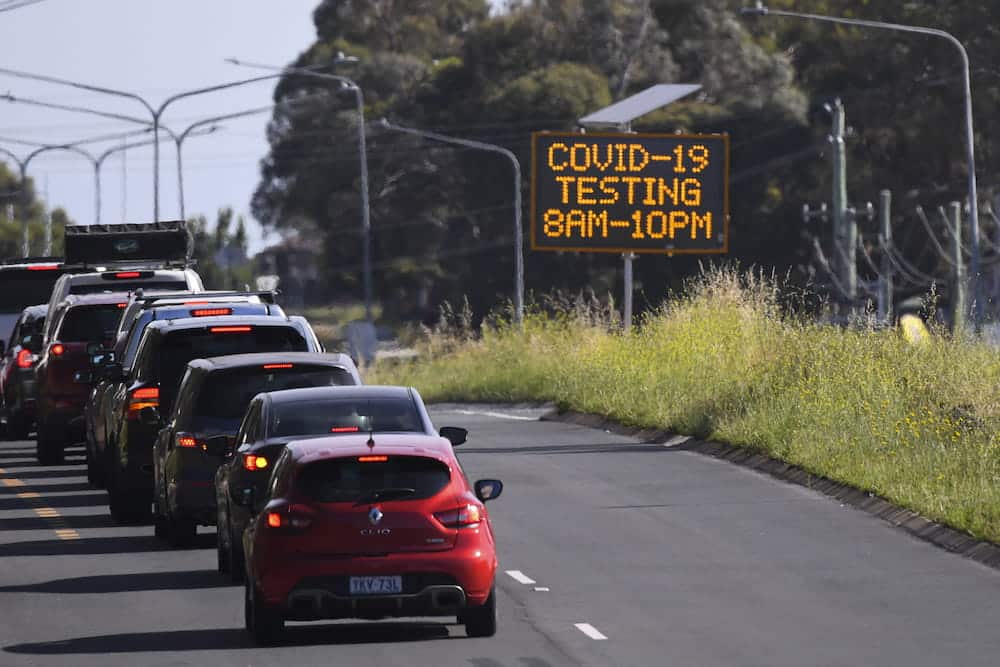Australia’s COVID-19 response failed the nation’s most vulnerable people and in many cases amounted to over-reach, according to a new report.
The report – Fault lines: An independent review into Australia’s response to COVID-19 – led by former public servant Peter Shergold, also found some lockdowns and border closures weren’t necessary, and schools should have remained open.
It warns governments against the perils of over-reach when dealing with future health crises.
The private sector-funded report, released on Thursday, said politically driven health orders and excessive lockdowns failed to protect the old, ignored the young and abandoned disadvantaged communities.
Prime Minister Anthony Albanese said concerns raised by the report would make their way to a future inquiry on the pandemic.
But Victorian Premier Daniel Andrews, who oversaw one of the longest lockdowns globally – with Melbourne clocking 262 days under stay-home orders – pushed back against the report’s findings, which he admitted he hadn’t read yet.
“There was nothing academic about COVID-19,” he told reporters.
“There’s nothing academic about the fact that we didn’t have any vaccines.”
NSW Premier Dominic Perrottet said the country should be proud of its overall response, admitting “there were difficult decisions – we got some right, we got some wrong”.
Queensland Premier Annastacia Palaszczuk also defended her policies of effectively isolating the state for months.
“We made the decisions in the best interests of Queenslanders and it kept Queenslanders safe,” she said.
“I stand by our world-leading result when it comes to the number of lives that were lost compared to other jurisdictions.”
South Australian Premier Peter Malinauskas, who was opposition leader when the pandemic began, said “every government around the country, Liberal and Labor, were trying to deal with very difficult circumstances”.
Federal Opposition Leader Peter Dutton said it was not fair to criticise the previous federal government, which found itself in 2020 facing a “war-like time” requiring a “war-like response”.
Prof Shergold said lockdowns were a lost opportunity for authorities to get on with the job of logistically managing a pandemic, from dispatching personal protective equipment to keeping the economy afloat.
“Lockdowns are a part, but they can’t be the key way of dealing with a health crisis,” he said.
While school closures were probably the right decision when the virus was little understood, “it was wrong to close entire school systems, particularly once new information indicated that schools were not high-transmission environments”, the report said.
“For children and parents (particularly women), we failed to get the balance right between protecting health and imposing long-term costs on education, mental health, the economy and workforce outcomes,” it said.
The report also said COVID-19 rules were often enforced in ways that lacked fairness and compassion.
“Business people were often allowed to travel across borders, whilst those wanting to visit dying loved ones or newborn family members were not afforded a similar opportunity,” the report said.
One of those consulted in the report was Sydney GP Jamal Rifi, who became a prominent advocate for the vaccination of migrant communities.
He spoke of the punitive aspects of curfews across 13 LGAs in southwest and western Sydney, enforced by the NSW government.
“The curfews were very damaging because it facilitated the spread of the virus rather than limiting it,” Dr Rifi told AAP.
“In Sydney, it was a tale of two cities. There were different rules for western and eastern suburbs … which accentuated societal fault lines.”
Prof Shergold advocated for a more localised approach that would have drawn on the skills of local governments.
“You’re dealing with a national pandemic, but you’re interfacing more directly with local governments, community and business leaders, not just in making decisions but in communicating them,” he said.
“The danger in doing that is that it can undermine public trust, with people in Bankstown feeling unfairly treated compared to people in Bondi.”
The report also recommended the establishment of an Australian centre for disease control, more transparency around decision-making, and better collaboration across state lines.



